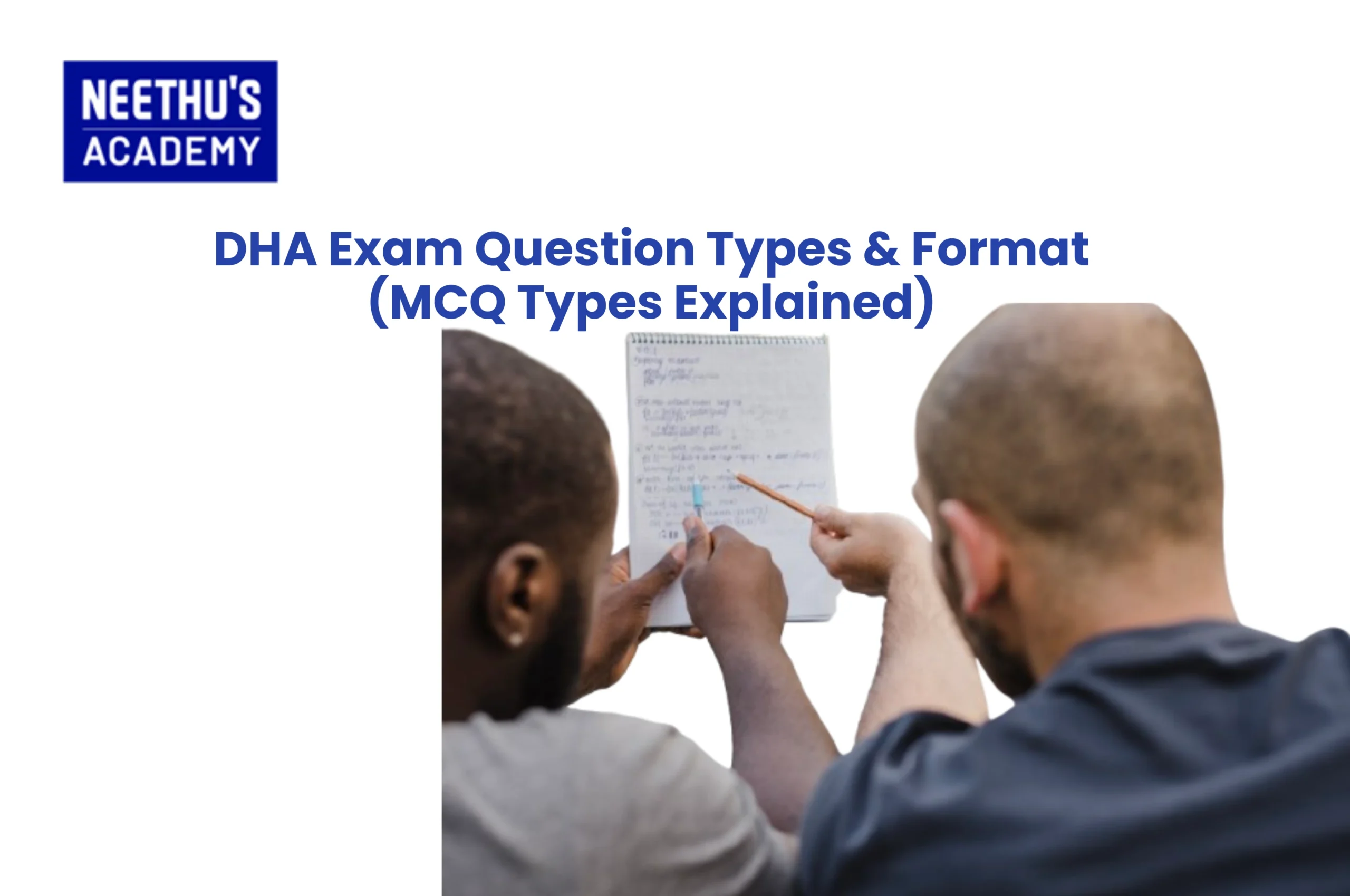Essay writing can be nerve-wracking at times. The IELTS writing task is no less of a challenge. In this test task, an…

IELTS Speaking Part 3 Discussion Strategies
IELTS Speaking is an essential component of your overall band score, and Part 3 of the section usually turns out to be the trickiest. IELTS Speaking Part 3 assesses your ability to articulate ideas, support opinions, examine issues, and evaluate arguments. In contrast to the informal nature of Parts 1 and 2, this part is abstract and academic.
In this blog, we will be going through effective IELTS Part 3 tips, example questions, vocabulary, and techniques to help you ace this section of the test. Whether you are self-studying or have joined an OET coaching centre, these tips shall assist you in enhancing your fluency and confidence.
Understanding IELTS Speaking Part 3
IELTS Speaking Part 3 is 4–5 minutes long and is directly consecutive to the Part 2 cue card answer. The examiner will ask 4–6 follow-up questions that are topically connected to your Part 2 response. Yet the tone of these questions is more advanced and requires more thought.
This section is designed to assess your ability to speak about topics in an organized and reasonable manner. Your answers should demonstrate coherence, fluency, rich vocabulary use, and grammatical correctness.
Types of Common Questions in Part 3
Understanding IELTS Speaking Part 3 question types will help you respond more spontaneously. The following are the most common categories:
Opinion questions
Example: “Do you think that children should have homework every day?”
Comparative questions
Example: “In what ways is family life today different from the past?”
Cause and effect questions
Example: “Why do others want to live alone? What are the consequences of this trend?”
Hypothetical questions
Example: “Would people recycle more if they were paid to do it?”
Future prediction questions
Example: “How will education be different in 20 years?”
Solution-based questions
Example: “How can traffic jams in cities be minimized?”
Knowing these categories helps you organize your IELTS Speaking responses in your mind more easily while taking the test.
Successful Strategies for Answering Part 3 Questions
The following are some practical IELTS Speaking Part 3 tips to ensure you provide thoughtful and coherent responses:
1. Take Your Time
You have a brief pause in which to think. Don’t rush. Take that time to think through your response mentally.
2. Use the P.E.E. Structure
Point – Explain – Example
This strategy ensures your responses are clear and detailed. Begin with a statement of opinion, justify it, and reinforce it with an actual or hypothetical example.
3. Develop and Expand
Steer clear of single-line responses. Strive to talk for 4–6 sentences for each question. This demonstrates your capacity to explain yourself at length and use language in a variety of ways.
4. Stick to the Topic
Stay on topic regarding the question posed. Going off-topic may impact your coherence and task response score.
5. Apply Linking Phrases
Apply the use of phrases like “on the other hand,” “for instance,” “consequently,” and “in contrast” to ensure your responses sound organized and natural.
6. Practice Thoughtful Speaking
Practice talking about IELTS Speaking questions as a routine to feel comfortable with analytical speaking. Try speaking with a friend or recording your answers to self-evaluate.
Useful Phrases and Vocabulary
Good vocabulary boosts your lexical resource score. There are the following categories and some example phrases:
Expressing Opinions
“Personally, I think that…”
“From my point of view…”
“It seems to me that…”
Giving Examples
“For instance…”
“To give you an idea…”
“A good example is…”
Making Comparisons
“In comparison to the past…”
“In comparison with this…”
“Nowadays, it isn’t the same…”
Speculating or Predicting
“It’s probably going to happen that…”
“I picture that…”
“In the future, I think…”
Discussing Solutions or Problems
“One solution might be…”
“This would have…”
“One big problem is that…”
Practice Topics and Sample Questions
As additional practice for your IELTS Speaking, try practicing with the following sample topics:
Topic: Environment
Why are there people who do not care about environmental issues at all?
What do schools need to teach students about the conservation of nature?
Topic: Technology
How has the use of smartphones changed the way people interact socially?
What are the benefits and drawbacks of artificial intelligence?
Topic: Education
What are the benefits of foreign education?
How should schools equip students with the skills needed to compete in the future?
Topic: Health and Fitness
Why do humans embrace unhealthy living habits?
What are some steps governments can implement towards healthier lifestyles?
Attempt recording your answers to these IELTS discussion questions and listening back for fluency, coherence, and vocabulary usage.
Importance of Professional Coaching
While self-practice is good, training under a professional trainer can go a long way in improving your performance. A structured program from a reliable OET coaching centre can provide:
Personalized feedback on your speaking performance
Mock interviews with IELTS-style questions
Immediate correction and pronunciation practice
Developing strategies for various types of questions
Coaching provides a systematic way of helping you gain confidence, especially for difficult parts like Speaking Part 3.
Best OET Coaching Centre in Kerala
If you ever happen to be in Kerala and need IELTS and OET assistance, reach out to Neethu’s Academy, the best IELTS coaching center in Kerala. Here is why students prefer it:
Professional trainers with in-depth IELTS and OET experience
One-to-one speaking sessions with precise feedback
Mock interviews and speaking practice on a regular basis
Customized advice for fluency, vocabulary, and coherence
Reasonable fees and flexible timings
High success ratio among examinees
Professional assistance plays an important role in acing IELTS as well as OET tests.
Conclusion
IELTS Speaking Part 3 need not always be daunting. Proper techniques coupled with practice ensure you accomplish it confidently. Familiarize yourself with the various question types, frame your responses accordingly, and use good vocabulary.
With preparation, clarity, and practice, you will be in good hands to pass the IELTS Speaking test.
Frequently Asked Questions
Organize your response with a clear opinion, explanation, and example using the P.E.E. technique.
Rehearse regularly with practice questions, record your response, and receive feedback from a trainer or speaking practice partner.
They are abstract and analytical questions on the topic of opinions, comparisons, causes, effects, and predictions.
Yes, drawing on appropriate personal experiences can assist in backing up your opinion and making your answer more convincing.
Related Blogs
- All Posts
- IELTS
Speaking in front of someone may not be everyone’s cup of tea. But when it is a mandatory criterion to attain your…
A perfect English language proficiency is strictly required for intending nurses to practice in English-speaking countries. IELTS and OET are the most…
Course Enquiry
Latest Posts
- All Posts
- canada
- CBT
- DELF
- DHA
- French
- GENERAL
- German
- Haad
- IELTS
- IQN NEW ZEALAND
- MOH
- NCLEX-RN
- NHRA
- OET
- OSCE
- Pearson Vue
- PROMETRIC
- PTE
- TOEFL
- Back
- NCLEX - NGN
- Back
- OET FOR PHYSIOTHERAPIST
- OET FOR PHARMACIST
- OET FOR DOCTORS



